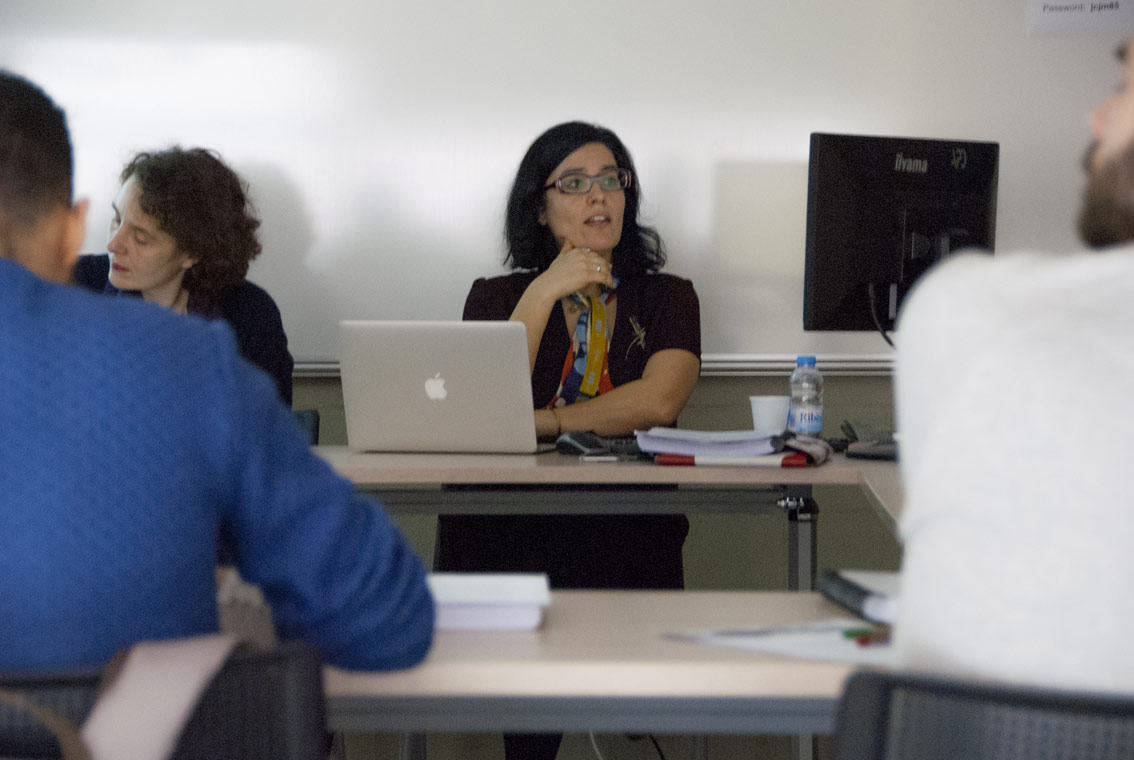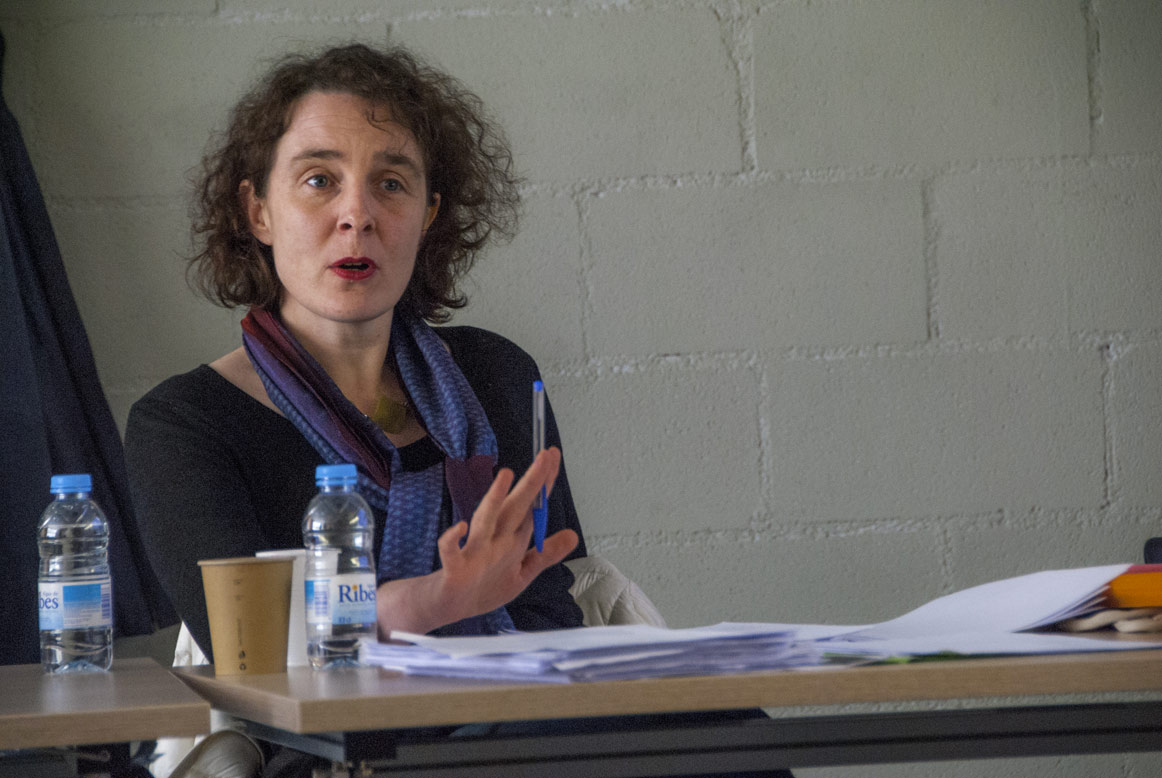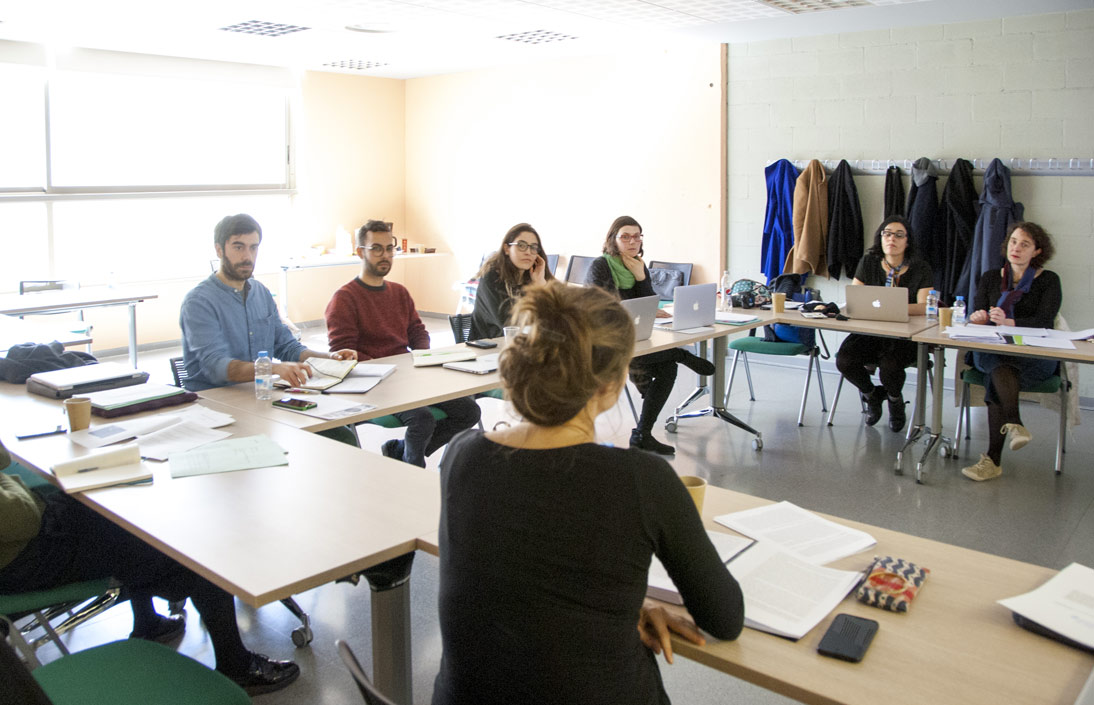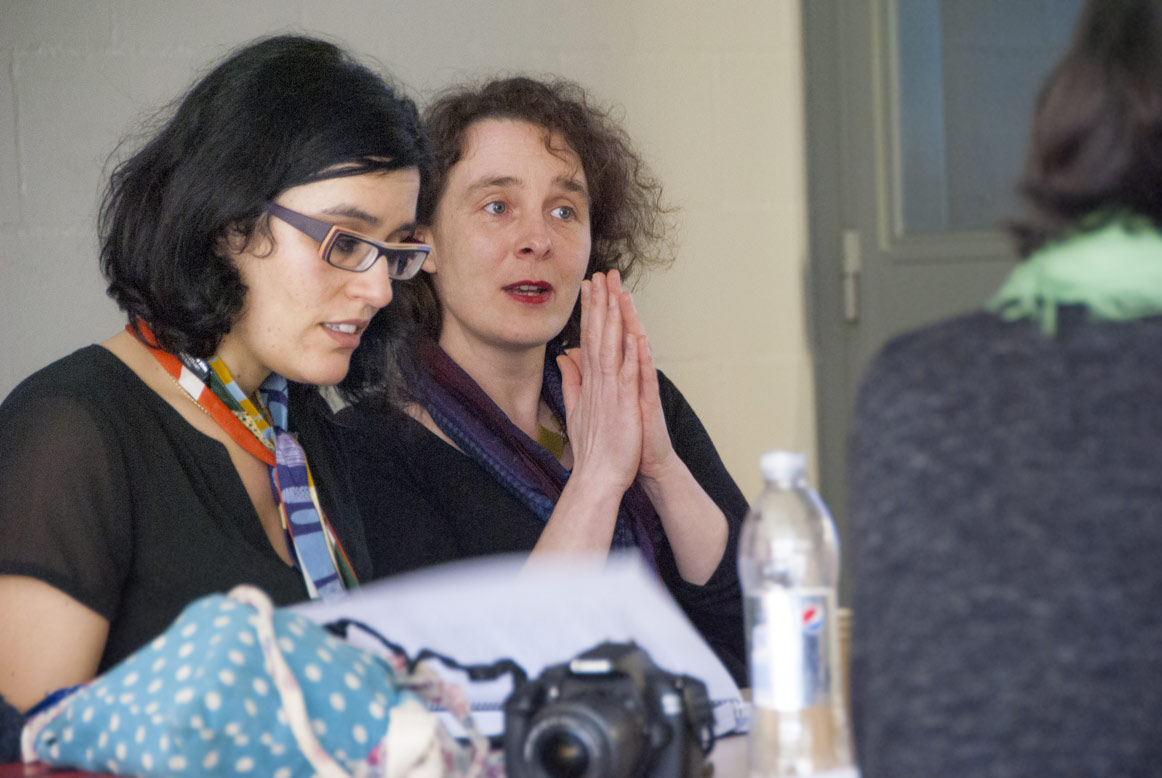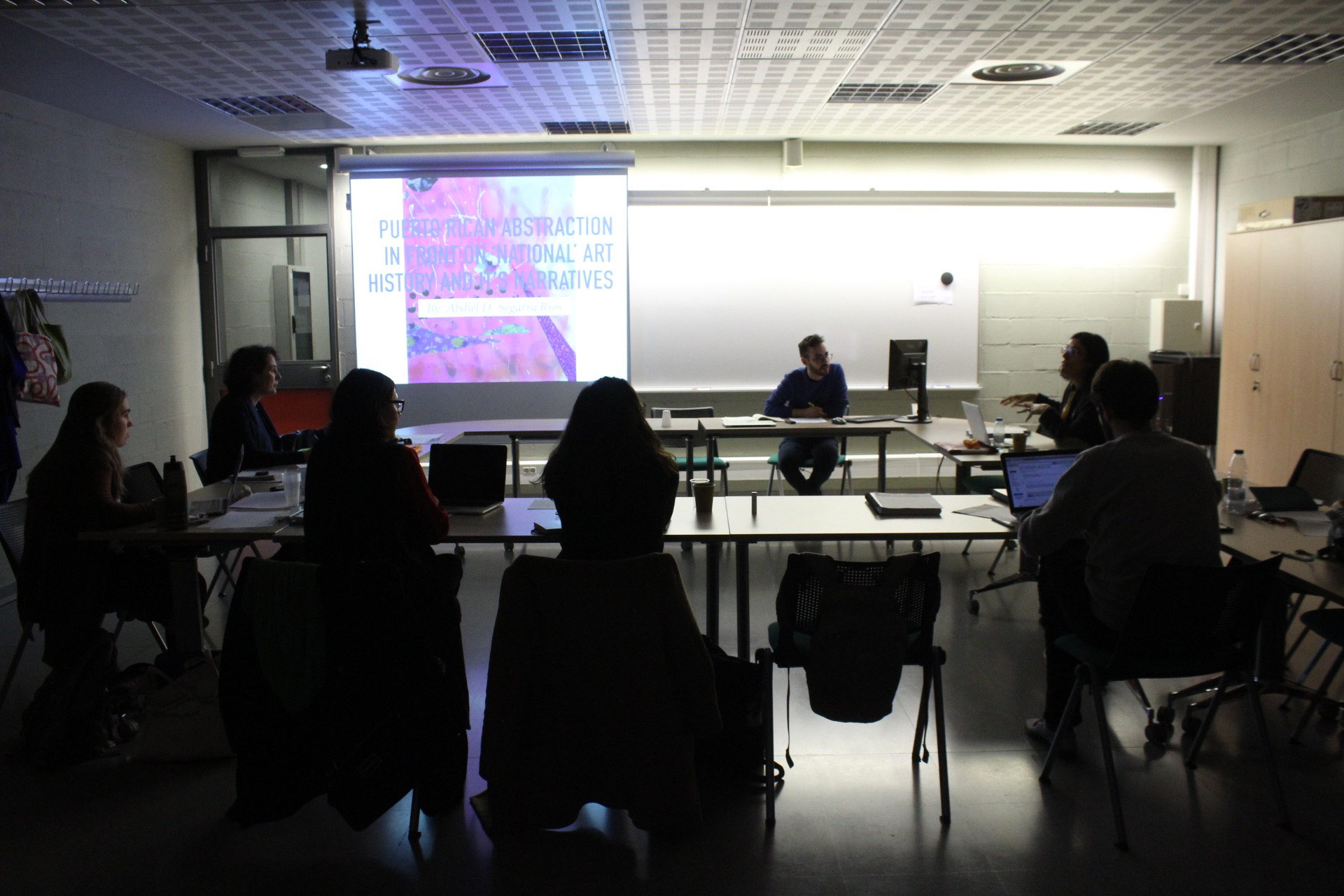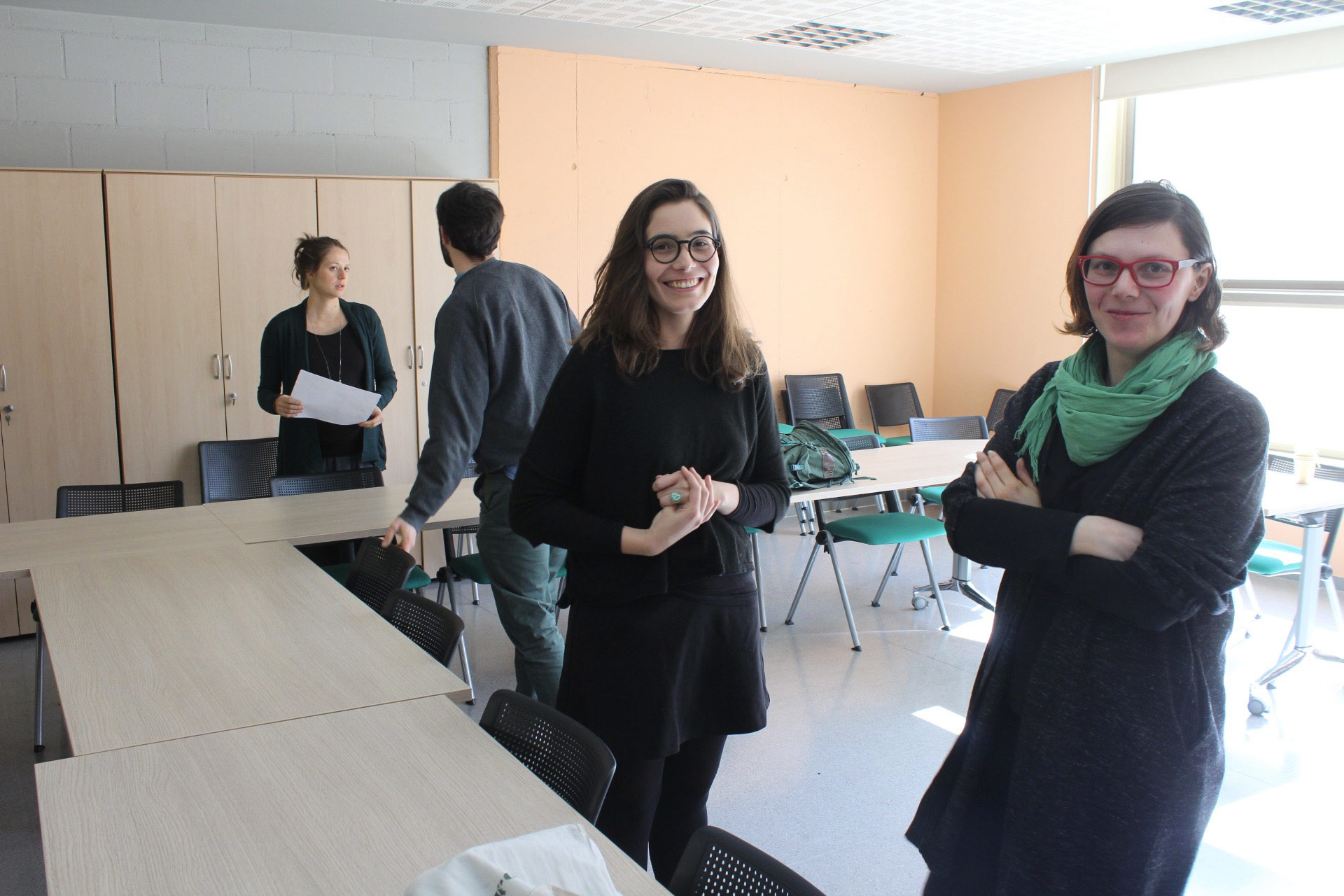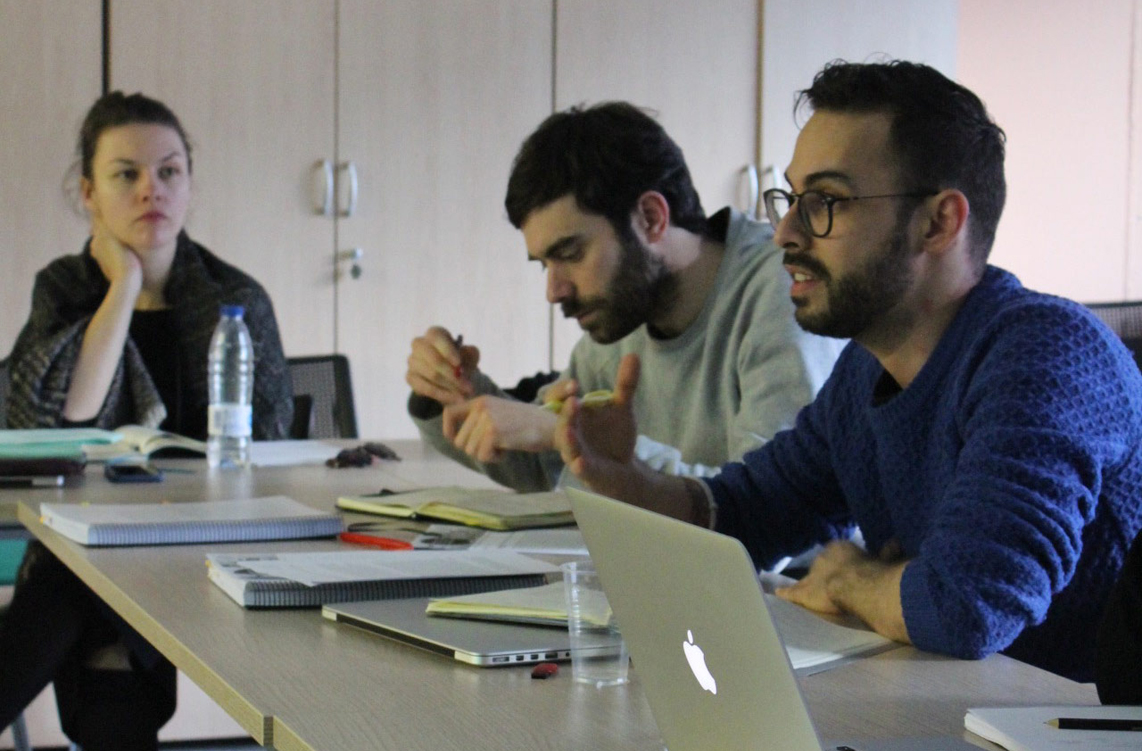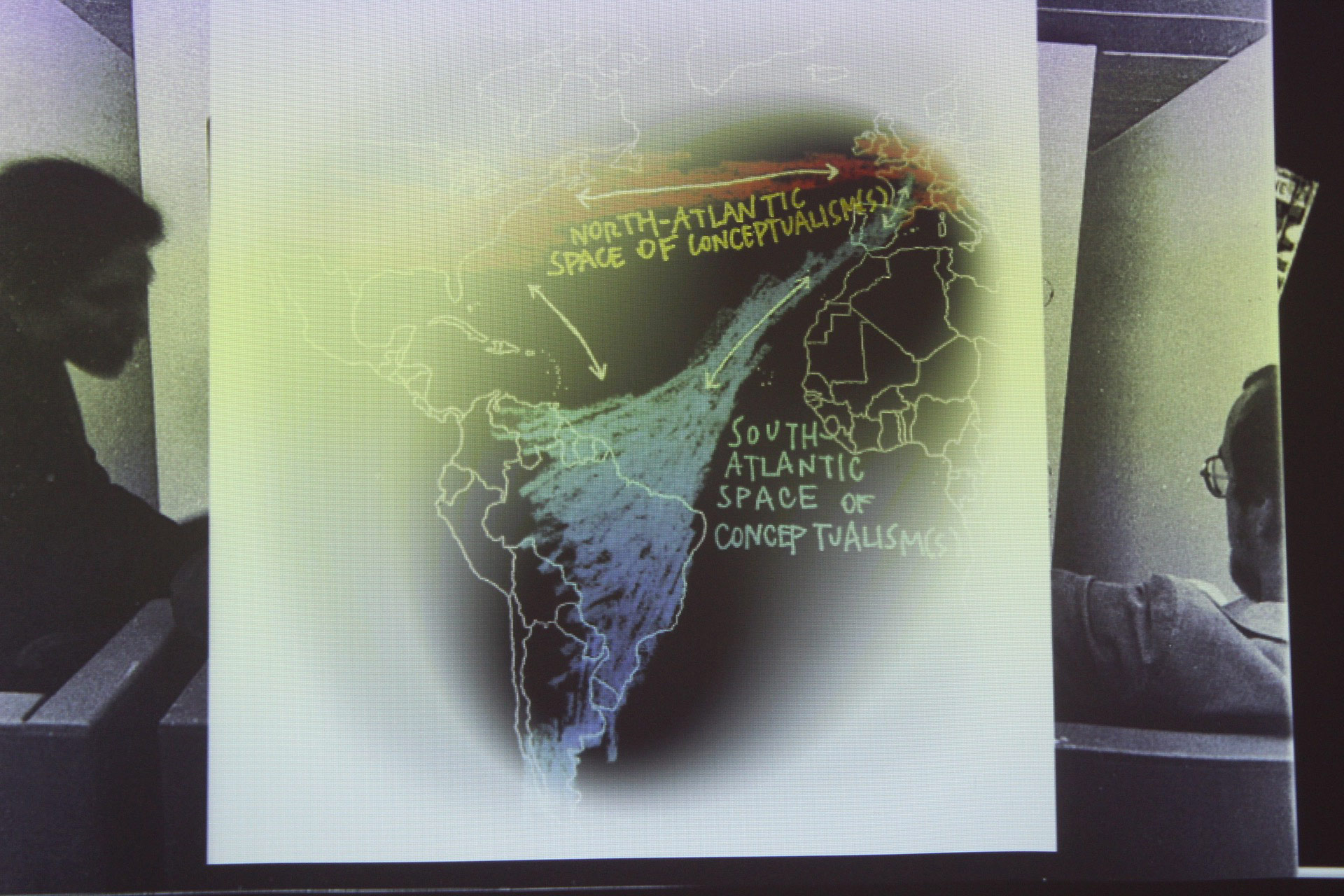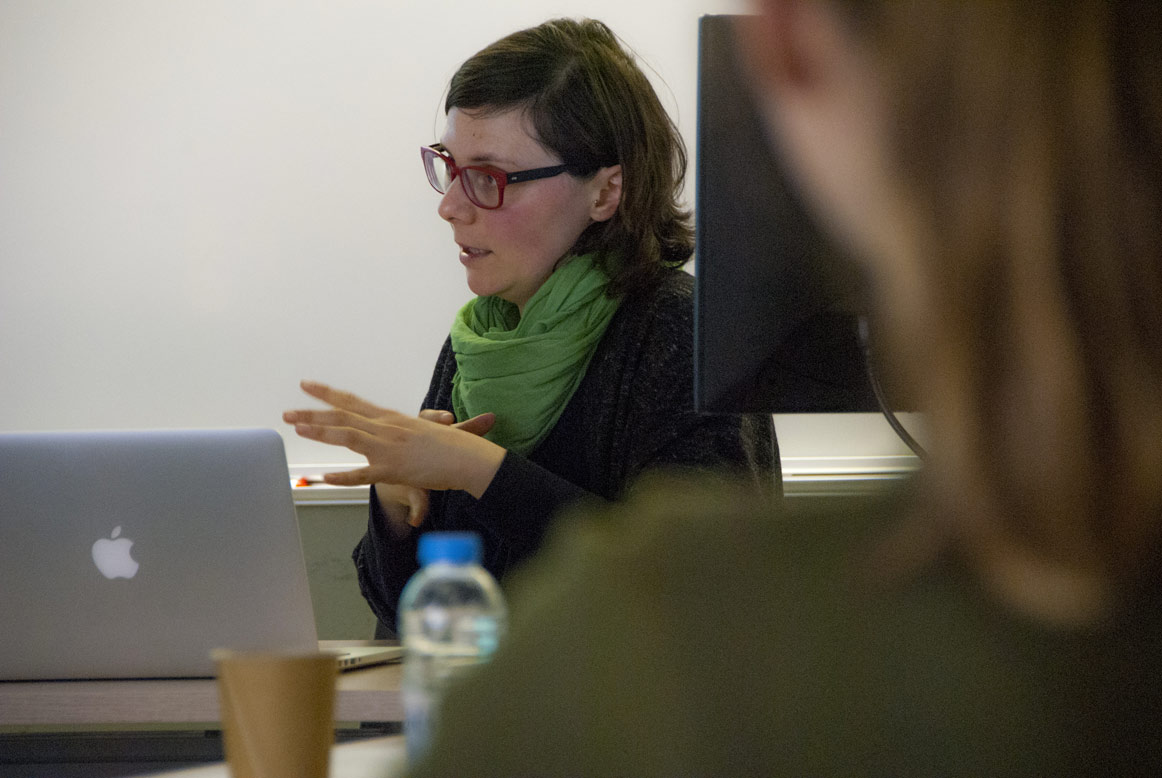Doctoral worskhop MoDe(s)
Tuesday 6 and Wednesday 7 March 2018
Questioning the great divide(s) during the Cold War: a tool box for a transnational history of art
Sala Seminario de Filosofía (4th floor)
Facultat de Geografia i Història, Universitat de Barcelona
Participants: Mathilde Arnoux (DFK, Paris), Paula Barreiro López (Universitat de
Barcelona), Juliane Debeusscher (Universitat de Barcelona), Anita Orzes (Universidad Autónoma de Madrid), Abdiel Segarra Rios (Universidad Autónoma de Madrid), Pablo Santa Olalla (Universitat de Barcelona)
This workshop proposes to share and discuss a series of methodological and theoretical resources, in relation to the study of cultural and intellectual practices during the Cold War and their intersections with the sociopolitical contexts from which they arise, from a transnational perspective. The researches put up to debate are situated within the field of art history; however, they are open to contributions from other disciplines such as cultural and visual studies, contemporary history and political sciences.
While the work on case studies represents an essential part of art historical research on this period, we are proposing here to distance ourselves temporarily from the objects, actors and concrete events with their specific coordinates, in order to examine the interpretative frameworks in which they are inscribed, as well as the relationship between the application of these frameworks and the construction of narratives about persons, artifacts or historical episodes. Therefore, we will expose and discuss the theories and general paradigms through which we think about our respective case studies, as well as the question of the researcher’s position in relation to his/her historiographical practice and his/her delimited field of work including sources, references, influences, etc.
The workshop focuses on the conceptual and theoretical resources involved in each study, to examine their articulation and application, as well as the frictions and negotiations this process can bring in. To this end, the working sessions will be carried out based on the shared experiences of a guest researcher with a consolidated trajectory (Mathilde Arnoux, director of the European project “Own Reality. To each its own reality. The notion of the real in the fine arts of France, West Germany, East Germany and Poland between 1960 and 1989” (2010-2016) and Research department director at the Centre Allemand d’ Histoire de l’ Art (DFK), Paris), PhD candidates, as well as other participants in the workshop. Through presentations, discussions and shared readings, the objective of this workshop is to examine and compare the methodological and theoretical approaches and statements of the respective works.
Among the topics to be debated are the conditions, consequences and premises from which to adopt a transnational perspective to approach the artistic, critical or institutional practices and cultural events of the second half of the twentieth century, within a cross-reading between the artistic and socio-political worlds; the benefits and limitations of using referential frameworks such as, for example, global art history, social history, cultural and post-colonial studies; the relations and contrasts between the aspiration to internationalism and the development of local or regional cultural forms.
What forms or models of reflection can be mobilized to produce some research frameworks that allow us to embrace the naturally heterogeneous and complex nature of a transnational study, which can span several decades?
The workshop’s main language will be English. Readings can be proposed in Spanish, English and French. To receive the Reader, contact MoDe(s):
(info @modernidadesdescentralizadas.com)
Free access, within the limits of available seats.
 Report
Report
 Multimedia
Multimedia
Program
Tuesday 6 March – afternoon
Chair: Paula Barreiro López (Universitat de Barcelona)
15.30 – 15.45 > Welcome and introduction
15.45 – 16.45 > Invited conference: Mathilde Arnoux (Centre Allemand d’Histoire de l’Art, Paris). Shared Reality: Towards a history of artistic relations between the East and the West during the Cold War.
16.45 – 17.30 > Juliane Debeusscher (Universitat de Barcelona). Questioning interpretative frames: Central European art’s trajectories and points of fixation, 1971-1981 and beyond.
17.30 – 18.00 > Coffee break
18.00 – 18.45 > Abdiel Segarra Rios (Universidad Autónoma de Madrid). Puerto Rican abstraction in front of “National” Art History and its narratives.
18.45 – 20.00 > Reading workshop – session 1
Wednesday 7 March – morning
Chair: Juliane Debeusscher (Universitat de Barcelona)
9.45 – 10.15 > Welcoming breakfast
10.15 – 11.00 > Pablo Santa Olalla (Universitat de Barcelona). What is the South-Atlantic Space of Conceptualism?
11.00 – 11.45 > Anita Orzes (Universidad Autónoma de Madrid). From Venice Biennial to Havana, going through….?
11.45 – 12.00 > Pause
12.00 – 13.30 > Reading workshop – session 2
13.30 – 14.00 > Closing remarks
Download the program AbstractsPhotogallery
Photographs: Júlia Azcunce
Direction and coordination: Paula Barreiro López and Juliane Debeusscher
Workshop organized as part of the research project MoDe (s) – Decentralised Modernity (s): art, politics and counterculture in the transatlantic axis during the Cold War. HAR2014-53834-P / HAR2017-82755-P
With the support of the Departament d’ Història de l’ Art de la Facultat de Geografia i Història, Universitat de Barcelona.
Image: ‘Star’, Mapa humoristico da Europa em 1953 (detalle). Edition: J.R. Silva.

